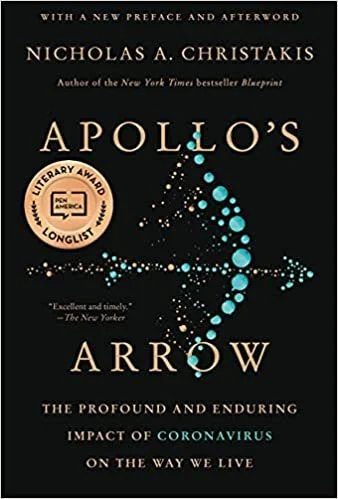Tracking Apollo’s Arrow
Topical books like this one are often blessed with media attention, but suffer as soon as the topic shifts course or its underlying story changes. This report on the coronavirus epidemic first published in late 2020 and was prefaced in its paperback edition in 2021, both before the Delta and Omicron variants appeared. Fortunately, Apollo’s Arrow took aim at a more long-range target: the historical precedents of plagues and pandemics and what they tell us about the course ahead.
Yale sociologist and physician Nicholas A. Christakis deftly recounts the history of epidemics in the recent and ill-remembered past and draws painful parallels to the present day. “While the way we have come to live in the time of the COVID-19 epidemic might feel alien and unnatural, it is actually neither of those things. Plagues are a feature of the human experience. What happened in 2020 was not new to our species. It was just new to us.”
The brightest moment is this hall of horrors is the concluding chapter, “How Plagues End,” which explains how societies have contained pathogens with natural immunity or vaccines and recovered from devastating losses. But the afterword to the paperback edition offers a cautionary caveat: “A raging epidemic cannot be stopped with just one intervention, because, as we have seen, even vaccines are imperfect.”
